I have two RIR's, they are such great chickens, not fully grown yet, but still amazing! I love my girls.
Navigation
Install the app
How to install the app on iOS
Follow along with the video below to see how to install our site as a web app on your home screen.
Note: This feature may not be available in some browsers.
More options
You are using an out of date browser. It may not display this or other websites correctly.
You should upgrade or use an alternative browser.
You should upgrade or use an alternative browser.
-
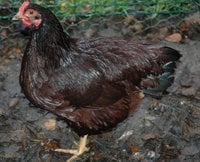 d6b0ab73_rhode_island-10529-121964.jpeg108.6 KB · Views: 6,007
d6b0ab73_rhode_island-10529-121964.jpeg108.6 KB · Views: 6,007 -
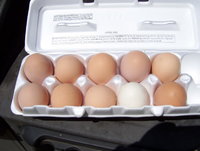 398f6587_rhode_island-10529-674992.jpeg70.5 KB · Views: 5,714
398f6587_rhode_island-10529-674992.jpeg70.5 KB · Views: 5,714 -
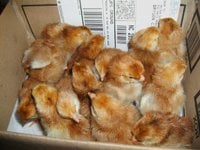 7e0cfc25_rhode_island-10529-953660.jpeg105 KB · Views: 5,591
7e0cfc25_rhode_island-10529-953660.jpeg105 KB · Views: 5,591 -
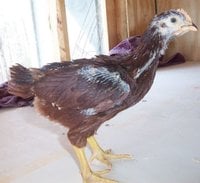 56f9aebd_rhode_island-10529-744820.jpeg53.3 KB · Views: 5,909
56f9aebd_rhode_island-10529-744820.jpeg53.3 KB · Views: 5,909 -
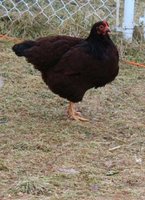 81f67c15_IMG_2844.jpeg72.2 KB · Views: 4,697
81f67c15_IMG_2844.jpeg72.2 KB · Views: 4,697 -
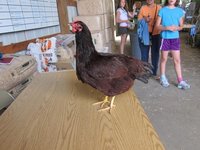 5908eff1_1938839842LL.jpeg60.1 KB · Views: 5,468
5908eff1_1938839842LL.jpeg60.1 KB · Views: 5,468 -
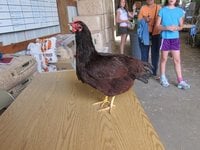 066d7691_881913981LL.jpeg60.1 KB · Views: 5,683
066d7691_881913981LL.jpeg60.1 KB · Views: 5,683 -
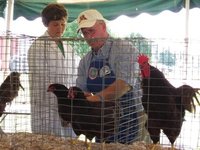 db41be00_986336227LL.jpeg63.5 KB · Views: 6,060
db41be00_986336227LL.jpeg63.5 KB · Views: 6,060 -
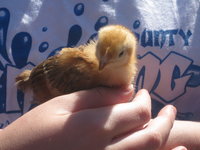 d680ffd3_Misc.endofschoolyear2011347.jpeg2.4 MB · Views: 5,995
d680ffd3_Misc.endofschoolyear2011347.jpeg2.4 MB · Views: 5,995 -
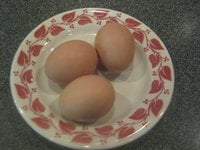 d0bb78d5_348.jpeg3.9 MB · Views: 6,009
d0bb78d5_348.jpeg3.9 MB · Views: 6,009 -
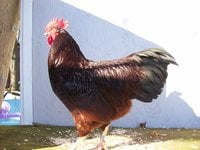 a4356fda_100_0733.jpeg1.2 MB · Views: 5,952
a4356fda_100_0733.jpeg1.2 MB · Views: 5,952 -
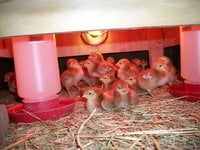 916f7ca2_100_0901_0218.jpeg842.4 KB · Views: 5,844
916f7ca2_100_0901_0218.jpeg842.4 KB · Views: 5,844 -
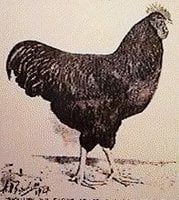 80a1d492_4d8fmohawkfive.jpeg18.2 KB · Views: 5,100
80a1d492_4d8fmohawkfive.jpeg18.2 KB · Views: 5,100 -
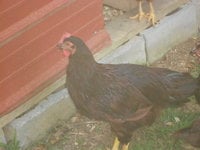 3c03b161_273.jpeg147.6 KB · Views: 6,146
3c03b161_273.jpeg147.6 KB · Views: 6,146 -
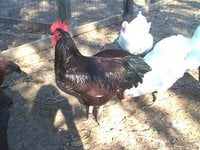 4d13df05_294139346.jpeg60.3 KB · Views: 5,904
4d13df05_294139346.jpeg60.3 KB · Views: 5,904 -
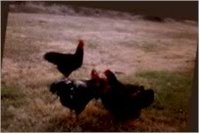 80034f04_d7ca.jpeg6.2 KB · Views: 5,816
80034f04_d7ca.jpeg6.2 KB · Views: 5,816 -
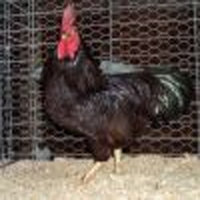 9472b970_Bills-male_edited-12.jpeg58.7 KB · Views: 5,955
9472b970_Bills-male_edited-12.jpeg58.7 KB · Views: 5,955 -
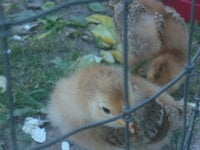 2693e6c3_P6280006.jpeg2.2 MB · Views: 5,656
2693e6c3_P6280006.jpeg2.2 MB · Views: 5,656 -
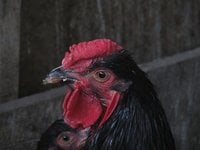 0d4212ad_Blueredlaceswydootte019.jpeg87.2 KB · Views: 5,855
0d4212ad_Blueredlaceswydootte019.jpeg87.2 KB · Views: 5,855 -
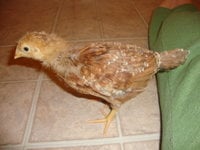 392f5534_DSC02691.jpeg4 MB · Views: 5,779
392f5534_DSC02691.jpeg4 MB · Views: 5,779 -
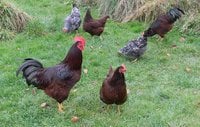 c962e426_015.jpeg1.2 MB · Views: 4,934
c962e426_015.jpeg1.2 MB · Views: 4,934 -
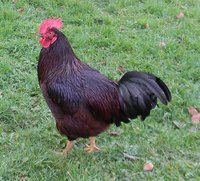 824164be_034.jpeg498.3 KB · Views: 9,064
824164be_034.jpeg498.3 KB · Views: 9,064 -
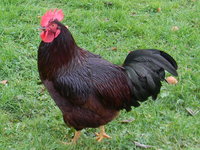 abc6690d_039.jpeg283.9 KB · Views: 5,023
abc6690d_039.jpeg283.9 KB · Views: 5,023 -
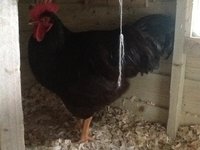 04cf7a1d_image.jpeg207.9 KB · Views: 5,661
04cf7a1d_image.jpeg207.9 KB · Views: 5,661 -
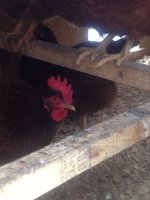 5df8a9e5_image.jpeg472.4 KB · Views: 5,830
5df8a9e5_image.jpeg472.4 KB · Views: 5,830 -
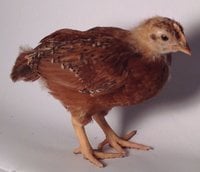 42c2464d_image.jpeg182.6 KB · Views: 5,766
42c2464d_image.jpeg182.6 KB · Views: 5,766 -
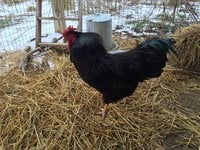 d1bf5c6e_image.jpeg4.6 MB · Views: 5,706
d1bf5c6e_image.jpeg4.6 MB · Views: 5,706 -
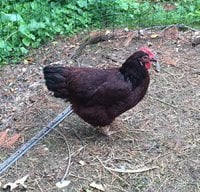 cb087cbf_LL-2.jpeg261.8 KB · Views: 5,218
cb087cbf_LL-2.jpeg261.8 KB · Views: 5,218 -
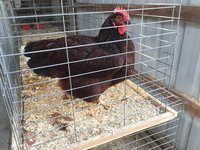 02be7cb5_IMG_4451.jpeg978.1 KB · Views: 5,032
02be7cb5_IMG_4451.jpeg978.1 KB · Views: 5,032
Rhode Island Red
- Added by Super Admin
- Create date
- Updated
Rhode Island Reds are one of the most popular and oldest known breeds of chicken and was developed mainly in Rhode Island and Massachusetts in the mid 1840's.
- LillianMae
- 5.00 star(s)
Pros: Pretty, sweet, lovely personality, a great chicken
Cons: None.
- KM and Ruthie
- 4.00 star(s)
Pros: Friendly, good egglayer, pretty
Cons: bully
Our RIR is very friendly toward us. She(as all of our chickens) comes when called, and greets us at the door. She is a bit of a bully though toward the other chickens, especially one in particular, who is a buff orpington.
- SJ
- 3.00 star(s)
Pros: Economical brown egg producers and excellent free range foragers.
Cons: The Production Reds is a nasty flock member. Good Heritage Red Lines are hard to find but worth it.
That right, there is more than one type of Rhode Island and they are very distinct breeds. Reds are one of, if not the most common brown egg layer to be found. While the whites are practically unknown by comparision. So lets start with a little history before some compare and contrast of the Reds.
A highly informative history on the White type can be found here: http://albc-usa.org/cpl/rhodewhite.html Please read it as I dont care to plagerize or rehash.
Next lets cover a very real issue with Reds. This issue is the "Modern Industial/Production Red"(PR) vs. the "Heritage Red"(HR). Is there a definite difference? I think so. I would point out some key differences.
To those that would differ I would point to the original intent of the breed. This is that the Rhode Island Red is to be first a layer breed, then when hens were spent a decent meat animal could be harvested as well as a breed who's males quickly grow big enough to be a respectable table bird. In this one point of fufilling the breeds original intent I will agree there is very little difference.
Now then why I can see two different breeds.
First difference I would point out is the plumage colors. There is two shades of red to be seen. The PR was not bred for much else besides egg production and due to this the firery lusterous deep mahogany plumage that the HR still wears has given way to a lighter, duller, but still red feathered bird.
I would point out size next. The PR is a smaller bird than the HR. This does help the PR with how economical it is to feed laying hens. The PR should lay more eggs on less feed. Even if its a likely smaller egg.
Lastly, and in my opinion the clearest difference; the attitudes or disposition. The HR I have had were calm, unaggressive, nonflighty and quiet. The opposite can be said for the PR I have kept. Plainly the were annoying, mean, and a nuisance on my farm. While I had them I had a horrible feather pecking issue that turned to cannibalism. I would add that this was even while the birds were freely open to range over my lawn and the farm fields in the backyard. I removed the cannibal birds, all PR, and have not had a feather pecking issue since.
The reason for this divergance in the Rhode Island Red is soley breeder selection. The HR has been pure bred to a standard while the PR has been bred purely for economic utility. If the priorities of two flock managers differ enough it can not only create disinct lines but will eventually produce a recognizably different breed.
P.S.
Seeing as hatcheries choose to sell PR labeled as Rhode Island Red it seems of little importance that New Hampshire blood was introduced in some PR lines. Ill review the Whites on a different breed profile.
A highly informative history on the White type can be found here: http://albc-usa.org/cpl/rhodewhite.html Please read it as I dont care to plagerize or rehash.
Next lets cover a very real issue with Reds. This issue is the "Modern Industial/Production Red"(PR) vs. the "Heritage Red"(HR). Is there a definite difference? I think so. I would point out some key differences.
To those that would differ I would point to the original intent of the breed. This is that the Rhode Island Red is to be first a layer breed, then when hens were spent a decent meat animal could be harvested as well as a breed who's males quickly grow big enough to be a respectable table bird. In this one point of fufilling the breeds original intent I will agree there is very little difference.
Now then why I can see two different breeds.
First difference I would point out is the plumage colors. There is two shades of red to be seen. The PR was not bred for much else besides egg production and due to this the firery lusterous deep mahogany plumage that the HR still wears has given way to a lighter, duller, but still red feathered bird.
I would point out size next. The PR is a smaller bird than the HR. This does help the PR with how economical it is to feed laying hens. The PR should lay more eggs on less feed. Even if its a likely smaller egg.
Lastly, and in my opinion the clearest difference; the attitudes or disposition. The HR I have had were calm, unaggressive, nonflighty and quiet. The opposite can be said for the PR I have kept. Plainly the were annoying, mean, and a nuisance on my farm. While I had them I had a horrible feather pecking issue that turned to cannibalism. I would add that this was even while the birds were freely open to range over my lawn and the farm fields in the backyard. I removed the cannibal birds, all PR, and have not had a feather pecking issue since.
The reason for this divergance in the Rhode Island Red is soley breeder selection. The HR has been pure bred to a standard while the PR has been bred purely for economic utility. If the priorities of two flock managers differ enough it can not only create disinct lines but will eventually produce a recognizably different breed.
P.S.
Seeing as hatcheries choose to sell PR labeled as Rhode Island Red it seems of little importance that New Hampshire blood was introduced in some PR lines. Ill review the Whites on a different breed profile.
- Purchase Price
- 1.50
- Purchase Date
- 2010-06-06
D
Pros: good laying
Cons: aggressive,mean,kills other chickens,territorial, bites,jumps at you
i used to have rhode island reds and the hens killed most of our flock! they will attack you no matter how much you socialize them as chicks. when i socialized them as chicks, i used the same methods as i do with my silkies and other chickens. these will come running to me when they see me, and wait for me to pick them up and they fall asleep in my arms. the rhodes are the opposite. they will jump, bite and puff up when you approach them. they do the same with other chickens too. we lost so many of our hens due to these birds. i am NEVER getting a rhode island red again. i really, really dont suggest getting this breed for your backyard flock.
caohorse
caohorse
- epeloquin
- 3.00 star(s)
Pros: Very hardy, very healthy, excellent layers.
Cons: Flighty, can be aggro, not very personable.
I have had three Rhodies for two years now. We raised them from chicks. They do not like being handled at all and generally keep their distance. My alpha hen is one of the Rhodies. She asserts herself but is not a bully. They lay nice brown eggs averaging around 5 per week. They have not gone broody at all. They have moulted and the moult lasted several months. They are pretty birds. Given the choice again, I would reserve Rhodies for more of a farm setting where their independence and hardiness would be very desired. For a backyard flock I would probably go with a more personable breed in the future.
- Purchase Price
- 3.00
- Purchase Date
- 2011-04-25
- Gen9
- 3.00 star(s)
Pros: dual purpose
Cons: I can't remember the last time mine laid an egg
Pros: Dual purpose, beautiful red bird
Cons: maybe it's just my hen but I can't remember the last time she's laid an egg. Her eggs are medium, reddish brown, and beautiful. Not sure why she's not laying, could be the fact that she is at the bottom of the pecking order in my flock. She's a bum and eats all the food. Not sure if I'm going to keep her around much longer. Hoping she starts laying again this spring.
Cons: maybe it's just my hen but I can't remember the last time she's laid an egg. Her eggs are medium, reddish brown, and beautiful. Not sure why she's not laying, could be the fact that she is at the bottom of the pecking order in my flock. She's a bum and eats all the food. Not sure if I'm going to keep her around much longer. Hoping she starts laying again this spring.
- Purchase Price
- 2.50
- Purchase Date
- 2011-03-30
- chickengirl2013
- 4.00 star(s)
Pros: great chickens for laying
Cons: roos can be very territorial
My seven Rhode Island Red pullets have just begin laying and from experience, I know that Rhode Islands are great layers. However, my pullets are extremly scittish and the rooster, George, can come off mean if you don't know him. Overall great chickens, though.
- ilovelove
- 3.00 star(s)
Pros: Large eggs, good production, hardy
Cons: slightly aggressive to other birds
I have a small mixed flock, and the RIR is one of my favorites. She lays the best eggs, (good size, and production) and she is very hardy. She does cause the most problems when I add new hens to the group, and definately is at the top of the pecking order. Once everyone is settled she does calm down and usually accepts the newer ones. She was a rescue.
- Purchase Date
- 2011-10-12
- jaj121159
- 3.00 star(s)
Pros: Decent layers
Cons: I had some that went broody.
I've enjoyed having RIR's, but my flock is going on two to three years old and I'm going to sell them this spring at our local auction. I'm not to going to get any more RIRs because I'm focusing on rare and endangered breeds.
- outdoorsii
- 4.00 star(s)
Pros: Great layers, good disposition, talkative :)
Cons: seems like everyone has them, most popular breed
I love my 3 RIR"s, they are actually somewhere btw 3-4 yrs old & they're still laying about every other day  so actually not too shabby
so actually not too shabby 
 so actually not too shabby
so actually not too shabby 
- stefan333
- 4.00 star(s)
Pros: Hardy
Cons: More aggressive
They like to peck at me.
- Emmapee
- 4.00 star(s)
Pros: great layer, entertaining, never broody
Cons: loud, bossy, can be aggressive
I've had my RIR for two years now. She was my first backyard chicken. I love her eggs, they are the perfect size and she lays a ton of them. She has never been broody and has typically been decently friendly towards me. Sometimes, however, she can get REALLY aggressive and will attack my shoes/feet.
All in all, I kind of like her attitude, it makes her really entertaining as a pet. She will grab fruit from you and run as fast as she can, which has kept me laughing for hours. She's really bossy and will make her annoying screetchy sounds until I let her out of the coop and then she will make me chase her around the yard for ten minutes to get her back in. She also saw the dog come through the ripped screen door, and started coming into the house! haha. Even though they can be moody, they are pretty cool if you're looking for a chicken to entertain you that you can watch, that also gives you lots of awesome eggs.
All in all, I kind of like her attitude, it makes her really entertaining as a pet. She will grab fruit from you and run as fast as she can, which has kept me laughing for hours. She's really bossy and will make her annoying screetchy sounds until I let her out of the coop and then she will make me chase her around the yard for ten minutes to get her back in. She also saw the dog come through the ripped screen door, and started coming into the house! haha. Even though they can be moody, they are pretty cool if you're looking for a chicken to entertain you that you can watch, that also gives you lots of awesome eggs.
- pokemonshop
- 5.00 star(s)
Pros: good egg laying, kind, and awesome
Cons: none
very hardy
- WallTenters
- 4.00 star(s)
Pros: temperament, egg laying, meat
Cons: Can be a bit hard on other birds
Get the real deal the "production reds" from large hatcheries are not anything like the real reds from reputable breeders. I had the bantams then gave them to my business partner they are such sweet little birds, total pets with nearly no handling. Both large and bantams very sweet towards people, but can be a bit pecky towards other chickens. They were never vicious just squabbly, glad my friend has them now she will breed them and I get to enjoy when I go visit but not hear the pecking order being resorted every other hour.
- cutlerfam7
- 2.00 star(s)
Pros: Good Layers, Tough
Cons: Bossy, Aggressive
I have a mix of large brown egg layer breeds and in this mix I have about 7 RIR. My girls are like a gang and pick on basically all of the other chickens. They are always nipping at the others steping on the girls necks and pulling their neck feathers and they have even started pulling the top feathers of my beautiful Polish hen. And the thing is all of my chickens are the same age and have grown up together since I got them in a group of 25.
- PiecesofAmber
- 5.00 star(s)
Pros: lots of eggs! friendly demeanor
Cons: none come to mind
I love my 3 RIRs! The little one is Penny, the medium Ruby and the biggest Scarlet. They are a little loud, but loveable. They run to me as soon as I get in the chicken yard, and never seem afraid of me. If you've never had one, you must get one!
- Purchase Price
- 2.65
- Purchase Date
- 2012-05-21
- cedermeeavey
- 5.00 star(s)
Pros: Super chill, great layer, very friendly
My RIR is such a great bird. She's a regular layer and shows no aggression toward other birds. No broodiness. I love this bird.
- Hishigata
- 5.00 star(s)
Pros: excellent layers, good predator avoidance, good foragers
Cons: noisy egg song
My very first flock was 2 RIR girls. They were personable, came when called, and fabulous egg producers. One of the girls, Fermina, would sing a loud egg song after each egg and occasionally call to be let out in the mornings. Otherwise they were pretty quiet but they had free range of over an acre so I was not always near by to notice. They came in every night to roost and rarely ran from people. They even liked the horses and would hang out with them in the pasture.
I later had a RIR in a flock with a Silver-laced Wyandotte and Buff Orpington. The RIR was not particularly aggressive but they were raised together from a very young age so that may have contributed to good flock dynamics.
I later had a RIR in a flock with a Silver-laced Wyandotte and Buff Orpington. The RIR was not particularly aggressive but they were raised together from a very young age so that may have contributed to good flock dynamics.
- CinnamonQueen
- 3.00 star(s)
Pros: pretty consistent layer, nice eggs, they do fly but not that high
Cons: They fear me and aren't pets, sometimes LOUD EGG SONG, not particularly pretty
These birds would be good for places where nobody minds occasional loud egg songs. Cinnamon and Honey used to do loud egg songs, but I hear it less often now. Other than loud egg songs, they are mostly quiet. Its probably because of the way we raised them, but our RIR's are not very "cuddly" with us. They struggle when we hold them. Honey sometimes pecks at my feet too.
 She also pecks at me when I try to grab eggs from under her.
She also pecks at me when I try to grab eggs from under her.
They have never been aggressive to other chickens. I have seen them fly for short distances, but not for height. Once, a dog got in, and these two ran straight for a hiding place, rather than the coop (which was open at the time.) They know the danger, which is good.
One lays every day, and another lays about every other day. The eggs are a speckled rosy brown.
Overall, its an average breed.

They have never been aggressive to other chickens. I have seen them fly for short distances, but not for height. Once, a dog got in, and these two ran straight for a hiding place, rather than the coop (which was open at the time.) They know the danger, which is good.
One lays every day, and another lays about every other day. The eggs are a speckled rosy brown.
Overall, its an average breed.
- Purchase Date
- 2012-04-06
- MegaChickens
- 2.00 star(s)
Pros: Pretty
Cons: Agressive
I bought a pullet chick from Agway in July. As it turns out Candace is not as feminine as we had expected. Our now, 5 month rooster is very agressive. Until a few weeks ago he was calm and laid back but as of late he has been very wild and mean. We had to separate him from our flock, when he is separated the flock is well behaved and calm. When with the roo all the roos start attacking each other and the hens. We rehomed him, thinking getting him into a new flock would calm him down but we haven't heard anything lately. He is a very pretty bird but his temperment was not. He could be held if you caught him, but catching him was a pain.
- Purchase Price
- 5.00
- Purchase Date
- 2012-07-04
